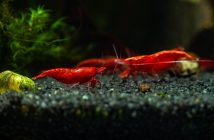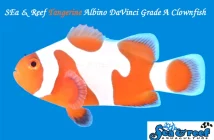It was only a matter of time before another non-native fish invaded the waters of the Atlantic, but instead of just one species it’s three. Perhaps using the term invasion is going a little overboard at this point, but if any of these three fish go the way of the lionfish, we could be witnessing the birth of an invasion at this very moment. According to the U.S. Geologic Survey, a panther grouper (Chromileptes altivelis), spotted scat (Scatophagus argus), and yellow tang (Zebrosoma flavescens) were all caught off the coast of Florida at different times of this year. However, this isn’t the first occurrence of these fish in that area. Each of the three species was spotted at least one other time before, with the scat last seen in 1992 and the other far more recently. The yellow tang was last seen in 2005 and the grouper in 2007. These limited sightings don’t mean an invasion is in the works, but it’s surely a cause for concern among Florida biologists and conservationists.
For the moment, little is known about the abundance of these fish and just how they got into Florida waters. However, scientists do know that, at the very least, that the panther grouper and yellow tang have been released into different parts of both the Atlantic Ocean and Gulf of Mexico as they have been independently encountered in both areas. The details behind how these fish species got into the waters is unknown, but is highly speculated that they were formerly pets that the owners decided to intentionally release or they somehow got released by accident. It is also speculated that the fish could have been accidentally pulled into the ballasts of transport ships. This scenario is unlikely, but it has been the source of non-native species introductions in the past.
The cause for concern with the sightings of these three fish is due to the fact that they are non-native to the waterways surrounding Florida and will likely have a negative impact on the ecosystems in the area. It is possible that each of these species could outcompete the locals, driving down the numbers of native species and completely wrecking the ecosystem.
While the yellow tang is generally considered a beneficial species due to its algae grazing behavior, it could outcompete local tangs at the very least. As for the scat, like the lionfish, it has venomous spines which might make it nearly untouchable by potential predators. Fortunately for the previous two fish, they are mostly omnivorous and herbivorous, but for the grouper it is a far different story. The panther grouper is a voracious predator that could have a severe impact on baitfish and juveniles of more beneficial species, having a very negative impact as seen with the lionfish.
The big take home message behind stories like this and the massive ordeal with the lionfish is that we, as pet owners, need to be responsible. And Flordia authorities agree. The growing concern has even prompted the state to sponsor a series of pet amnesty days where pet owners can turn in their unwanted pets to those willing and qualified to care for them.





